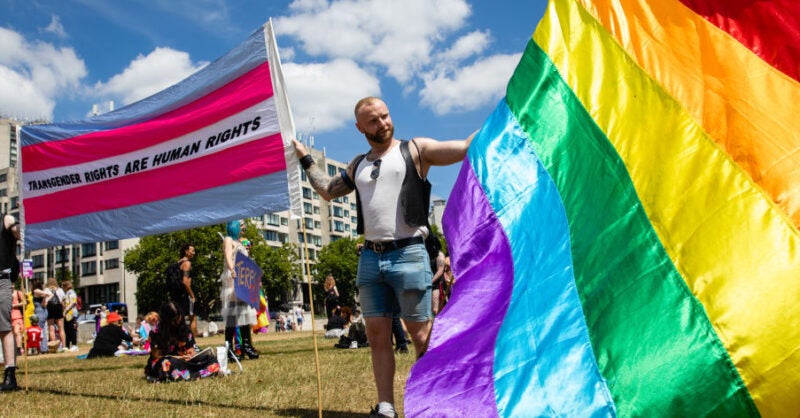LGBTQ journalists in the UK see their job as increasingly dangerous due to widespread online abuse targeting their sexual identity and gender orientation, according to a new study.
More than four in five respondents (82%) to a survey commissioned by the Sir Lenny Henry Centre for Media Diversity at Birmingham University said they had faced trolling, meaning online comments deliberately intended to upset someone. Over half (56%) said they had faced homophobic harassment.
Almost four in five (78%) felt it was increasingly dangerous to work as an LGBTQ journalist in the UK. Abusive emails with death threats, homophobic abuse while on press trips and abusive comments under stories were among the forms of abuse and harassment reported by participants.
Almost all the journalists surveyed said that being present on social media was important to their work, despite having to endure online abuse across social platforms. LGBTQ journalists reported being most often harassed on Twitter (88%), compared to 33% on Facebook and 24% on Instagram.
The research, which drew on data collected from organisations such as IPSO, the NUJ and the ONS as well as a survey of 40 LGBTQ journalists and individual interviews with media workers based in the UK, also found media organisations are not doing enough to support those affected.
Over three-quarters (78%) of journalists surveyed disagreed that media organisations in the UK were doing enough to protect them from harassment and abuse. Just two respondents (5%) said that employers’ efforts were adequate.
Content from our partners
Over half (58%) of respondents said their employer did not specifically recognise the risks faced by LGBTQ journalists, and most (62%) journalists did not file a complaint as a result. Half of study participants said they would not know who they could turn to in their workplaces should they be targeted online.
Free counselling and therapy services were said to be in short supply. Despite the fact that four in five respondents said they had experienced stress and 74% reported anxiety, only half said their workplace provided free therapy or counselling services.
The report argued that gay, lesbian and trans people are comparatively well-represented at media organisations in the UK citing as an example the relatively high numbers at the BBC (10.6%), even among leadership teams (11.5%). “True inclusion”, however, was lacking, found the report.
“Inclusion in this context would be the creation of policies and guidelines that ensure LGBTQ journalists are given institutional support when they face challenges or harassment as a direct result of their sexuality or gender identity during journalistic activities,” said the report.
While the majority of survey respondents (87%) said they felt comfortable being open about their sexual orientation or gender identity at work, 18% reported they had suffered abuse from colleagues.
The report recommended that to help tackle this it was crucial that “media organisations need to ensure that the focus extends from hiring staff from LGBTQ communities and moves to creating an inclusive environment, both in the workplace and the wider community, for LGBTQ journalists.
“Representation is not enough when LGBTQ employees do not feel comfortable being their true selves at work and fear the repercussions of being openly LGBTQ.”
Report author and human rights journalist Finbarr Toesland said: “If left unchecked, hate speech and abuse against LGBTQ journalists has the potential to create a chilling effect where journalists are either uncomfortable or afraid to report on vital issues of importance to LGBTQ people.”
Over three-quarters of survey respondents (76%) worried that high levels of abuse would lead to LGBTQ journalists leaving the industry.
Media diversity expert Marcus Ryder of the Lenny Henry Centre said: “Newsrooms across the UK must do a better job at protecting their LGBTQ journalists – this damning report exposes the hostile environment far too many LGBTQ journalists face just for doing their job and is a call for action for media organisations can support them.”
The report highlighted that the UK media has in recent decades made progress in how LGBTQ stories and issues are covered but that the news industry continues to discriminate against the LGBTQ community in is reporting.
Among the Lenny Henry Centre report’s recommendations were that journalist training should be expanded to specifically include threats faced by LGBTQ journalists and that newsroom leaders be trained on how to advise staff on tackling abuse, particularly online. The report also suggested provision of counselling services, better tracking of abuse and harassment and creating more inclusive environments within media organisations.
Email pged@pressgazette.co.uk to point out mistakes, provide story tips or send in a letter for publication on our “Letters Page” blog
